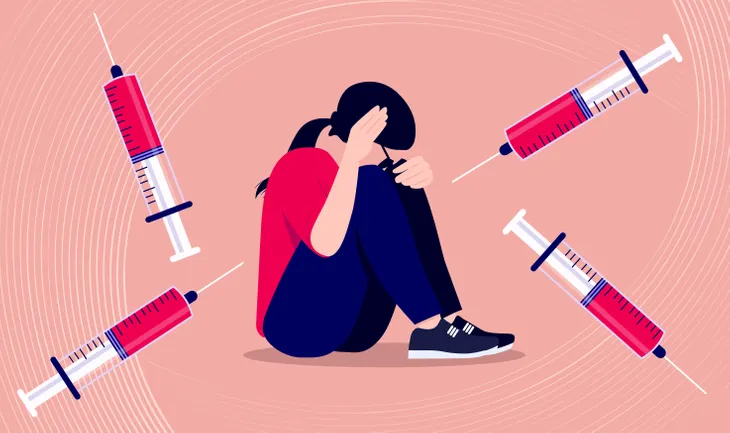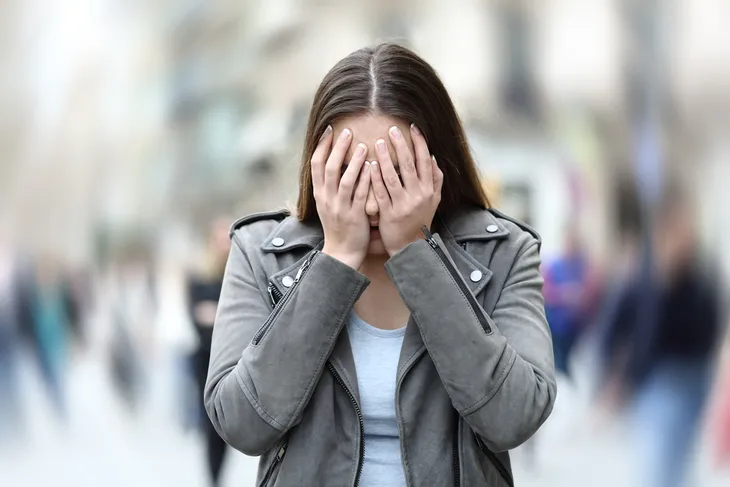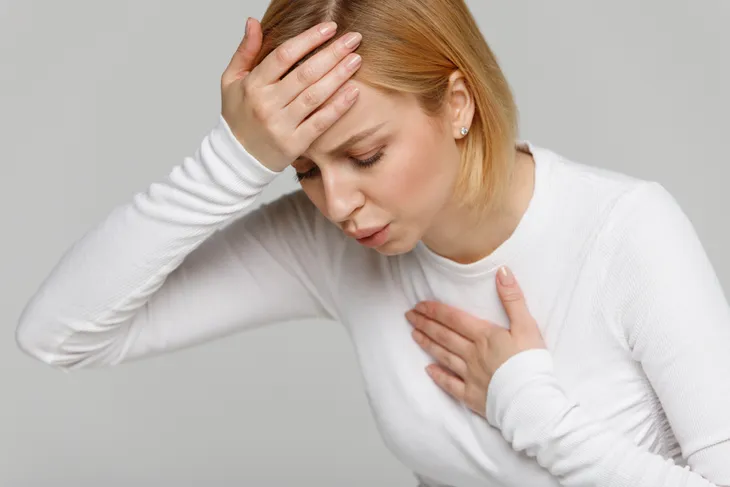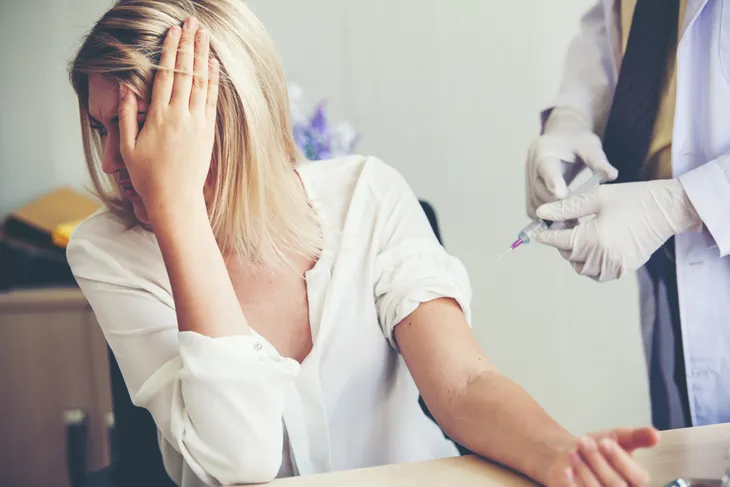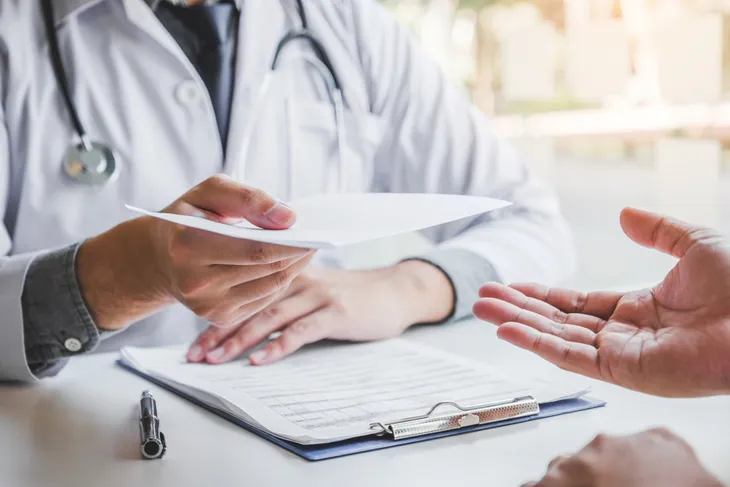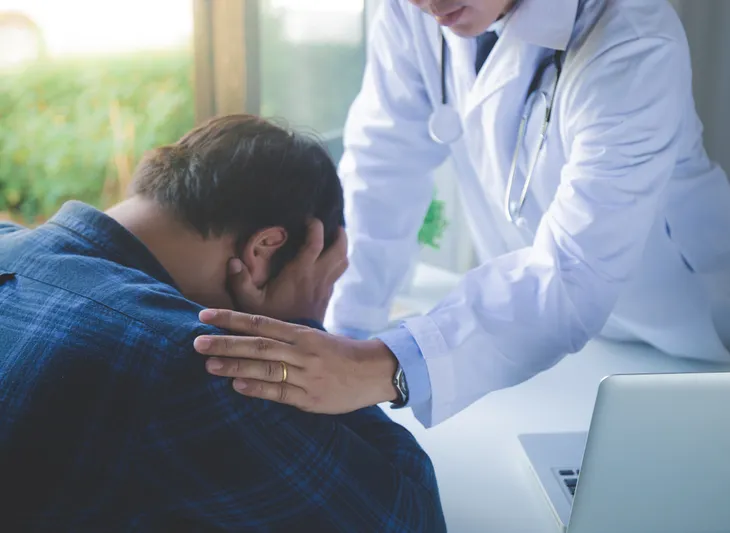Booking an appointment with a family doctor, and actually making the trip out, can be stressful. The fear of the unknown, the sanitary environment, the waiting, the other patients in the waiting room… there are a whole lot of stress factors that can trigger anxiety and unease in prospective patients.
Whether it’s a result of past negative experiences, genetics, evolutionary influences, or just the sight of it all, some fear the doctor’s office more than others. But trypanophobia isn’t a fear of doctors. Not exactly. Today, we’re going to explain exactly what this phobia is, what it feels like, why it happens, and what you can do about it. Let’s go!
Definition: What Is Trypanophobia?
Trypanophobia is the medical name for an extreme, crippling fear of any medical procedure that involves needles or injections. Do you get a queasy, uneasy feeling when you know you’re due for a shot? You aren’t alone. In fact, studies show that roughly 20-percent of the population suffers from some degree of trypanophobia.
Yes, a fear of needles is surprisingly common for a variety of different reasons that we’ll get into shortly. The important thing to note though is that there are treatment options too. A fear of needles doesn’t have to be a lifelong cross to bear. Before we get there though, let’s look at the most prevalent symptoms of trypanophobia.
Symptoms of Trypanophobia
A genuine fear of needles can be psychologically traumatic, but the symptoms of trypanophobia can affect a person’s physiology too. Fear, stress, and anxiety do indeed have physical manifestations.
The symptoms of this common phobia are particularly acute when a person sees a needle or is told that they must undergo a procedure that involves needles. This can likely cause high blood pressure and a racing heart rate in the days (and hours) leading up to your procedure. At your appointment, your blood pressure may rapidly drop which may cause you to faint.
Other Symptoms
Other symptoms of trypanophobia include dizziness, nausea, rapid breathing, sweating, trembling, anxiety, insomnia, and panic attacks.
Trypanophobia can also sometimes inspire emotional or physical violence. In most cases, it may lead the patient to run away from medical care or avoid treatment entirely.
Trypanophobia Causes
Zeroing in on the exact cause of a phobia in a particular patient can be tricky, but there is consensus on the types of experiences and genetics that increase a person’s risk of developing trypanophobia.
Intense fear of needles can be brought about by negative experiences or previous traumas. Learning about negative experiences with needles may lead to this phobia too, as can exposure to relatives with trypanophobia.
Some patients may experience a vasovagal syncope, or a vasovagal reflex, which is a physiological reaction to the sight of a needle that can lead to a sudden drop in blood pressure, dizziness, and fainting.
Complications
Having an extreme fear of needles may prevent you from getting the medical treatment you need. Another complication of this disorder is it can also cause stressful episodes that may result in panic attacks which can take a toll on your physical and mental health.
These complications make it vital that you receive treatment to overcome your fear. Even if you’re healthy now, if you experience a medical emergency or develop a chronic condition in the future, trypanophobia may prevent you from getting the help you require.
Diagnosing Trypanophobia
To diagnose trypanophobia, your doctor will first need to rule out any physical illness. This is done with a medical exam. If there is no physical illness, your doctor will likely refer you to a mental health specialist.
The specialist will ask you a series of questions about your physical and mental health and will also ask about your symptoms. Trypanophobia is diagnosed if your fears have interfered in some part of your life.
Treating Trypanophobia
Treatment may be different for each individual because the goal is to treat the underlying cause. Thankfully, overcoming your fear of needles is possible, with experts developing a multitude of treatment options for sufferers.
Most individuals will go through some type of psychotherapy to help treat their phobia. This may include cognitive-behavioral therapy or exposure therapy. Some individuals may also require medication. Let’s take a closer look at these treatment options next.
Treatment: Cognitive Behavioral Therapy
Cognitive Behavioral Therapy is one such option. Used effectively to treat depression, anxiety disorders, and addiction, CBT provides patients with an opportunity to explore their fear of needles in a safe and therapeutic environment.
Alongside the help and guidance of a professional therapist, patients will learn various coping techniques, and gain a better understanding of their fear through analysis and self-reflection.
Treatment: Exposure Therapy
Exposure therapy has been used to treat panic disorders, social anxiety, post-traumatic stress disorder (PTSD), generalized anxiety disorder, and phobias fairly successfully for quite a long time now. It’s a way to confront your fears safely and gradually, using a variety of methods and it can certainly be used to gradually lessen the fear associated with needles.
In vivo exposure, a patient is able to directly confront the object in real life, while imaginal exposure relies on the visualization of the feared object. Further, virtual reality exposure enlists help from technology, and interoceptive exposure attempts to mimic the symptoms of the phobia without the use of the feared object at all.
Treatment: Medication
If exposure therapy and cognitive behavior therapy fail to elicit the required result, doctors may rely on medication to calm the patient.
Anti-anxiety and sedative medications are used frequently, and they work well to relax the body and brain and reduce symptoms of trypanophobia. All of these medications can be used during blood tests, vaccinations, or any other needle-required procedure.
It’s worth noting, even though medications can’t outright cure the underlying cause of a patient’s trypanophobia, they can sometimes help ease the psychological barriers to seeking medical care.
Moving Forward With Trypanophobia
Coping with trypanophobia can be difficult but it’s important to understand that the fear of needles is incredibly common. It’s so common in fact, that doctors and psychologists have developed a multitude of ways to overcome or endure it.
Whether it’s through regular CBT sessions with a credentialed therapist, medications prescribed by your doctor, or guided exposure therapy, there exist ways to move past that fear and never look back.
When to See a Doctor
The bottom line is this: nobody needs to let their fear of needles get in the way of seeking urgent or preventative medical care. If you think you have trypanophobia, it’s time to talk to your doctor.
Be sure to vocalize your fear of needles ahead of your next doctor’s appointment and have them lay out all the alternative treatments, and medications available to you.

